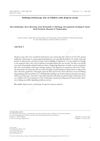 91 citations,
August 2015 in “Anais Brasileiros De Dermatologia”
91 citations,
August 2015 in “Anais Brasileiros De Dermatologia” Female Pattern Hair Loss affects women's self-esteem and needs more research for better treatment.
 1 citations,
January 2015 in “Springer eBooks”
1 citations,
January 2015 in “Springer eBooks” AGA is a common hair loss disorder, and early diagnosis and treatment with minoxidil or finasteride can help reduce emotional distress.
 November 2023 in “Laser therapy”
November 2023 in “Laser therapy” Trichoscopy is essential for diagnosing and managing alopecia areata in children.
 April 2020 in “IP Indian journal of clinical and experimental dermatology”
April 2020 in “IP Indian journal of clinical and experimental dermatology” Many children with alopecia areata also have other autoimmune diseases.
 99 citations,
July 2017 in “Clinical Reviews in Allergy & Immunology”
99 citations,
July 2017 in “Clinical Reviews in Allergy & Immunology” New treatments for Alopecia Areata show promise but need to be more effective and affordable.
 43 citations,
November 2019 in “American Journal of Clinical Dermatology”
43 citations,
November 2019 in “American Journal of Clinical Dermatology” FAGA diagnosis uses blood tests and trichoscopy, with treatments like topical minoxidil, oral anti-androgens, and hormone-modulating drugs.
 29 citations,
May 2010 in “Annals of Pharmacotherapy”
29 citations,
May 2010 in “Annals of Pharmacotherapy” Finasteride may help some women with hair loss, but better options exist.
 21 citations,
March 2006 in “Seminars in Cutaneous Medicine and Surgery”
21 citations,
March 2006 in “Seminars in Cutaneous Medicine and Surgery” Most hair loss disorders can be accurately diagnosed and treated in an outpatient setting.
 16 citations,
January 2015 in “Current problems in dermatology”
16 citations,
January 2015 in “Current problems in dermatology” Alopecia Areata is an autoimmune hair loss condition that needs more research for better treatments.
 14 citations,
May 1987 in “Archives of Dermatology”
14 citations,
May 1987 in “Archives of Dermatology” Tissue expansion is an effective treatment for certain types of hair loss, providing immediate coverage with hair-bearing skin.
 5 citations,
January 2019 in “Clinical Drug Investigation”
5 citations,
January 2019 in “Clinical Drug Investigation” Some off-label treatments increase hair density, but long-term safety unknown.
 2 citations,
January 2013 in “Elsevier eBooks”
2 citations,
January 2013 in “Elsevier eBooks” The document explains the genetic causes and characteristics of inherited hair disorders.
 May 2024 in “Portuguese journal of dermatology and venereology”
May 2024 in “Portuguese journal of dermatology and venereology” Reassurance and counseling are key in managing acute telogen effluvium, with supplements possibly offering a placebo effect.
 April 2024 in “The Egyptian Journal of Hospital Medicine ”
April 2024 in “The Egyptian Journal of Hospital Medicine ” Current treatments for androgenetic alopecia manage symptoms but don't cure it, and it affects social and psychological well-being.
 August 2023 in “International Ayurvedic medical journal”
August 2023 in “International Ayurvedic medical journal” Ayurvedic treatment successfully regrew hair in a 7-year-old girl with alopecia areata.
 March 2023 in “PARIPEX INDIAN JOURNAL OF RESEARCH”
March 2023 in “PARIPEX INDIAN JOURNAL OF RESEARCH” Tofacitinib helped regrow hair in most patients with severe hair loss.
 24 citations,
January 2021 in “Dermatologic Therapy”
24 citations,
January 2021 in “Dermatologic Therapy” Platelet-rich plasma (PRP) is a safe and potentially effective way to treat hair loss, especially when combined with minoxidil.
 13 citations,
January 2011 in “Lung India”
13 citations,
January 2011 in “Lung India” Stopping isoniazid can reverse hair loss caused by the drug.
 9 citations,
November 2020 in “Journal of Inflammation Research”
9 citations,
November 2020 in “Journal of Inflammation Research” Inflammation affects hair loss; anti-inflammatory treatments may help.
 6 citations,
April 2017 in “Experimental dermatology”
6 citations,
April 2017 in “Experimental dermatology” CD80CD86 deficiency causes hair loss by disrupting regulatory T cells.
 4 citations,
July 2021 in “Journal of Dermatological Treatment”
4 citations,
July 2021 in “Journal of Dermatological Treatment” Finasteride helps hair growth but may cause sexual side effects and depression.
 3 citations,
June 2019 in “Journal of Bangladesh Society of Physiologist”
3 citations,
June 2019 in “Journal of Bangladesh Society of Physiologist” People with hair loss often have lower levels of zinc and copper in their blood.
 3 citations,
April 2019 in “Journal of Dermatological Treatment”
3 citations,
April 2019 in “Journal of Dermatological Treatment” Caffeine shows promise for treating some types of hair loss, but more research is needed.
 1 citations,
May 2017 in “InTech eBooks”
1 citations,
May 2017 in “InTech eBooks” Some natural remedies may help with hair regrowth, but more research is needed to confirm their effectiveness and safety.
 1 citations,
January 2009 in “CRC Press eBooks”
1 citations,
January 2009 in “CRC Press eBooks” Finasteride increases hair count and improves hair growth with low risk of side effects.
 March 2024 in “Clinical, cosmetic and investigational dermatology”
March 2024 in “Clinical, cosmetic and investigational dermatology” Upadacitinib may effectively treat alopecia areata without side effects.
 June 2023 in “International journal of research in Ayurveda and pharmacy”
June 2023 in “International journal of research in Ayurveda and pharmacy” Malatyadi tailam effectively improved hair fall, dryness, and thinness in a patient.
 January 2023 in “Vìsnik problem bìologìï ì medicini”
January 2023 in “Vìsnik problem bìologìï ì medicini” Androgenic alopecia causes hair follicle degradation and skin restructuring, but some hair elements remain.
 January 2022 in “Clinical dermatology open access journal”
January 2022 in “Clinical dermatology open access journal” Early-stage Alopecia Areata was effectively treated in less than six months.
 August 2021 in “Journal of emerging technologies and innovative research”
August 2021 in “Journal of emerging technologies and innovative research” PRP combined with Ayurvedic medicine may effectively treat hair loss.






























